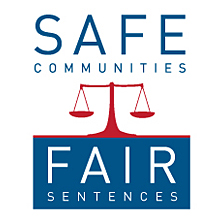
People lie for lots of reasons. We fabricate little stories to protect the feelings of friends, exclude details for the sake of convenience, and occasionally tell destructive tales to conceal our more sizeable missteps. Dishonesty, in its various incarnations, is not an admirable trait. But in moments of desperation, a lie can seem like the only option. Anita McLemore, a Mississippi mother of two, faced one of those unfortunate moments when filling out her application for food stamps — and now she’ll pay the price, by spending three years of her life behind bars in federal prison.
Thanks to a federal ban on food stamps for people with felony drug convictions, people like McLemore are out of luck when it comes to getting assistance with putting food on their tables. Though states can opt out of the ban, those that don’t (like Mississsippi) deny food stamps even to individuals who have already served their sentences or overcome previous addictions. It’s true that McLemore’s past isn’t perfect — she has four felony drug convictions and one misdemeanor, which place her firmly in the category of people the federal government has declared unfit to receive public benefits. Hence, faced with the prospect of being unable to feed her family, McLemore lied on her application.
While it makes sense that the government doesn’t condone drug use, it’s difficult to understand how a three-year stint in prison could be an effective way to respond to a woman with a history of substance abuse who is struggling to feed herself and her children. U.S. District Judge Henry Wingate looked at McLemore’s record and chose to see a repeat offender who lied and needed to be punished, rather than interpreting that lie as a cry for help. Effective, individualized treatment, not incarceration, would have been a more appropriate response to McLemore’s predicament.
Until we respond to situations like McLemore’s with a helping hand, rather than severe punishment and federal roadblocks, it is unrealistic to expect the cycle of addiction — and conduct that feeds that addiction — to be interrupted any time soon. No one would willingly choose a life in which lying to seek public assistance is the only way to support one’s family. Unfortunately, some of us have been left without a choice.
Learn more about overincarceration: Sign up for breaking news alerts, follow us on Twitter, and like us on Facebook.


